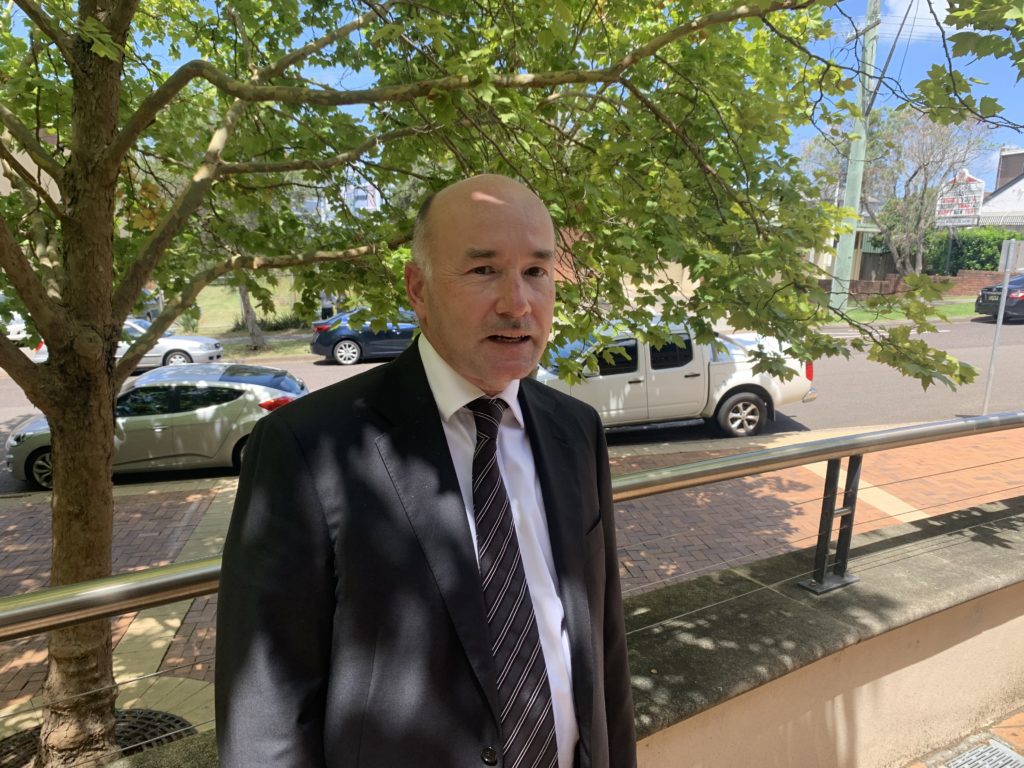A performance report into Central Coast Council’s Water and Sewer organisation has been slammed by resident Kevin Brooks, who highlighted nine decreases in performance but a summary that talked about “some pleasing results” at the public forum prior to the September 26 meeting.
“If performance reports are to drive improvement then results must be honestly and objectively interpreted, with causes explained and solutions identified,” Brooks said.
At the meeting, Administrator Rik Hart adopted a raft of water and sewer initiatives including: a Performance Report; a Customer Charter; a Complaints Management Framework; and plans for Community Engagement and Education.
They are the result of recommendations from the Independent Pricing and Regulatory Tribunal (IPART) a year ago when it set four years of ongoing water rate rises.
Brooks said the water and sewer performance showed: a more than 30 per cent increase in water quality complaints; unplanned service interruptions up 18 per cent; water lost to leaks increased almost 20 per cent; a spike in the volume of sewage overflows in the final quarter, and water main breaks up 13 per cent.
Council attributed the main breaks to expansion and contraction of soil attributed to a recent drier period of weather following the La Nina cycle.

“Council’s water main renewal program is forecast to significantly increase in scale from 2023-24 to address deteriorating asset performance over time,” Council said.
“Performance has not achieved the current target, however it remains better than the national average and other similar sized water authorities.”
Council said the total number of water quality complaints was heavily influenced by weather and water quality conditions during January and February 2023.
“These complaints typically peak in summer as demand increases, which results in faster moving water in the distribution network that can stir up accumulated particles,” Council said.
“A significant reduction in water network flushing and cleaning through 2019-20 and 2020-21 has likely contributed to the peak in discoloured water issues experienced last summer.”
Water quality improvements are underway across both the treatment assets that produce clean and safe drinking water as well as the network assets that convey water to customers.
Council says a major upgrade to Mardi Water Treatment Plant will improve the filtered water turbidity and chlorine stability.
These works are due to be commissioned in late 2025.
“An ongoing program of removing ‘dead ends’ within the water network by building additional pipelines will minimise the potential for discoloured water accumulation,” Council said.
Brooks also noted that the number of wastewater overflows reported to the environmental regulator remained above target and there was a spike in the number of days that beaches and lagoons were not swimmable because of sewer discharges.
Council said that while the number of overflows caused by tree roots had been decreasing, wet weather events continued to impact the network.
“Increased expenditure in gravity sewer main renewal programs is reducing the overall number of wastewater overflows,” Council said.
“Additional works to reduce inflow and infiltration into the sewerage network are commencing in 2023-24 including inspections, pipe relining and management of illegal stormwater connections.
“Upgrades of sewage pumping station mechanical and electrical assets are also ongoing to improve reliability of the sewerage network.”
In response to non swimming days, Council said sewer discharges included: failure of pipelines, due to age or damage; blockages caused by tree roots growing into the pipe or inappropriate materials being flushed such as fats and oils, wipes and cloth; high volumes of flow due to illegal stormwater connections to sewer; and inflow from floodwater.
Brooks said all the references to the weather reminded him of the UK train companies which became a national laughing stock for always having weather related excuses – snow in Winter, melting tracks in Summer, and leaves on the line in Autumn.
“Weather does not explain the scale of deterioration over a full year that we see here,” he said, calling on Council to report quarterly so progress could be tracked.
“Council promised that rate hikes would deliver improvements, yet these shocking results show that services have deteriorated further from an already low base,” he said.
“Ratepayers deserve better.
“There needs to be accountability, action and improvement.”
IPART recommended in May 2022 the set of performance measures and asked for authority from the State Government to review Central Coast Water’s progress in two years time.
“We feel it is crucial Council be held accountable for how the extra money is spent,” IPART said at the time.
IPART ruled in May 2022 that Council could increase water and sewer rates over four years by 17 per cent in 2022; six per cent in 2023; eight per cent in 2024 and one per cent in 2025.
A yearly inflation figure was to be added to each year’s increase which meant this year’s increase was about 14 per cent when inflation was added.
Residents can comment on Council’s draft Water and Sewer Community Engagement and Education Strategy.
The Strategy outlines how Council will engage, communicate, educate and continue to improve its services, while building trust with customers and the community.
Comment at https://www.yourvoiceourcoast.com/watersewerengagement
Merilyn Vale



